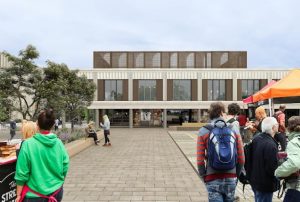Skipton Building Society sees £12m profits slump despite membership surpassing one million

Skipton Building Society (SBS) saw pre-tax profits fall by 5.9% despite increasing its membership to over one million in 2018.
For the twelve months ending 31 December 2018, the UK’s fourth largest building society reported pre-tax profits of £188.2m, which is 5.9% lower than the £200.1m achieved in the prior year.
Despite this loss, SBS saw an increase of 91,366 in members, taking its total to 1,010,426. This was spearheaded by the launch of the Society’s Cash Lifetime ISA, which attracted 85,948 new members during the year.
SBS also merged with Holmesdale Building Society on 1 October, welcoming almost 7,000 new members.
During this period, group gross mortgage lending slightly fell from £4.5bn to £4.3bn, which the Society said was a reflection of the “intensity of competition within the mortgage market, together with the impact of more stringent customer affordability criteria the Society introduced towards the end of 2017.”
However, mortgage balances grew by £1.6bn to £18.2bn, a growth rate of 10%, including £139m of balances arising on the merger with Holmesdale Building Society.
David Cutter, Skipton’s group chief executive, said: “These are yet another set of strong results for Skipton, and I’m really proud that we now serve over one million members. We also saw continued good growth in our mortgage and savings balances whilst maintaining a strong capital base.
“Looking after people’s savings and enabling home ownership is at the very heart of what the Society does as a mutual building society. I firmly believe that our long term focus of being there to help people plan for their life ahead is resonating with our members.
“The more competitive mortgage environment coincides with a continuous period of increased political uncertainty, as the UK is in the midst of withdrawing from the European Union. Should there be a no-deal Brexit there would be no immediate significant impact on the Society but we would be cautious regarding the potential medium to longer term implications arising from possible movements in house prices, unemployment or bank base rates.
“We currently anticipate that profits in 2019 will be lower than 2018 due to a combination of ongoing pressures on mortgage and savings margins, and the continuation of a subdued housing market. However, the political and economic uncertainty highlighted above makes forecasting difficult and creates a need for caution.”








